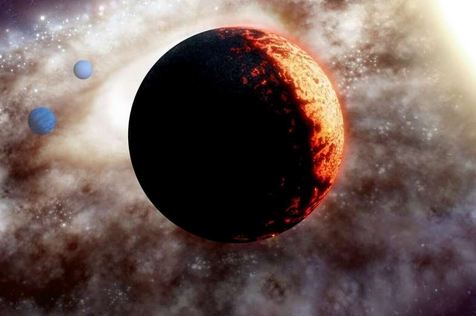An intriguing, rocky, and hot super-Earth amazes scientists with its features. The planet has almost three times the mass of Earth, but their densities are the same.
Other measurements indicate the super-Earth is 50 % bigger than our planet and needs less than half a day to orbit its star. So, the planet orbits its star twice.
Here is what you need to know.
Super-Earth Features and Other Significant Details
The new super-Earth, dubbed TOI-561b, is one of the most ancient rocky planets ever found. It’s surprising how its density is the same as Earth’s because scientists expected it to be higher.Â
It also has a short orbit due to its proximity to its star. Such a thing generates a lot of heat, somewhere over 2,000 degrees Kelvin.Â
Discussing the super-Earth’s aspects, Lauren Weiss, the team lead, stated:
“Its existence shows that the Universe has been forming rocky planets almost since its inception 14 billion years ago.”
NASA’s TESS insights
TOI-561b, named for NASA’s TESS, is part of a unique community of stars dubbed the galactic thick disk. What’s more intriguing is that the stars are chemically special, with less heavy elements, like magnesium or iron (related to planet development).
The TESS Mission team utilized data from the W. M. Keck Observatory in Hawaii (one of the greatest telescopes here on Earth) to determine the existence of super-Earth TOI-561b. Scientists also measured the planet’s density, radius, and mass.
Other Significant Details
Even if the super-Earth is unlikely to be populated soon, it might be a forerunner of many rocky planets yet to be found close to our galaxy’s most ancient stars.
Data about a cosmic body’s core, however, can help scientists a lot. They could find any signs on the surface that might indicate if the planet is habitable or not, at that moment or in the future.
However, we still need time to figure more things out. There is still a lot of stuff that puzzles scientists’ work.












Leave a Reply